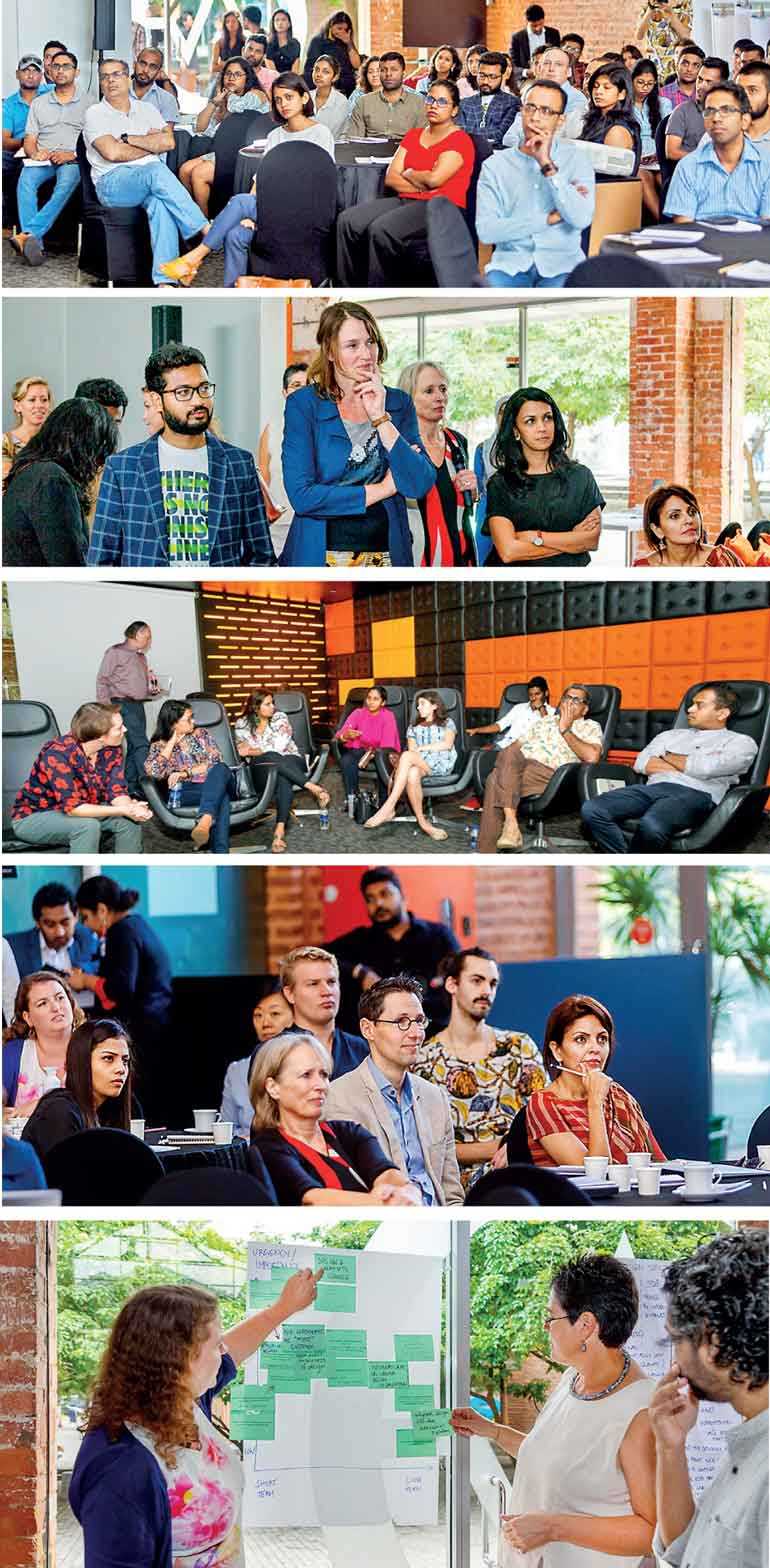Wednesday Feb 25, 2026
Wednesday Feb 25, 2026
Monday, 19 November 2018 00:27 - - {{hitsCtrl.values.hits}}

Sri Lanka was recognised as the hotspot for circularity and innovation in the South Asian region with the recent #innovationisland #SriLanka campaign. The campaign was brought to life first at Mercedes-Benz Fashion Week, and then the recently concluded Sri Lanka Design Festival (SLDF). SLDF hosted a series of talks, workshops and a knowledge-exchange roundtable facilitated through a ground-breaking AOD x Netherlands’ Embassy collaboration.
The event series was held as part of SLDF’s Innovation Island edition, bridging together Dutch-Sri Lanka design philosophies to help build a new culture of circular design and innovation in the island. The talk and workshop series plus, the knowledge-exchange roundtable involved the local design and innovation community, bringing in professionals representing a wide spectrum of industries from tech, apparel, advertising and retail, to education and craft SMEs. The events were held at Colombo’s tech hub – Trace Expert City last weekend, and paved the way to draw out some unusual approaches and work methodologies for circular businesses, from the world-renowned Dutch design expertise.
The series of workshops and talks were conducted by a group of Dutch experts who have been working with businesses and designers in the Netherlands for years, playing a role in earning the Scandinavian nation a global reputation as a hotspot for design and sustainability leading towards a more holistic kind of economic development.
Bart Ahsmann of CLICKNL – a Dutch creative industries’ knowledge and innovation network – explained the Dutch innovation system and the role of developing an innovation agenda in creating a shared vision for the creative industries as a whole. He pointed out how this is important for a sense of direction, visibility and an acknowledged place in the government support systems, industry and academia, for the CIs. Christine de Lille – professor of innovation networks at Hague University of Applied Sciences – talked about the use of design at the level of systems, showing with several examples how larger advances in innovation can be achieved through strategic design, design thinking and development of innovation networks.
Vera Winthagen – strategic design consultant at Eindhoven municipality – shared how she uses design thinking methods in public and societal development issues such as solving the mobility problem in the city of Eindhoven, or fighting social inequality in the municipality. Paulien Strijland – CEO and co-founder of Design4Good – showed how design thinking and strategic design plays a role in the development of innovation and innovative capabilities both within individual companies and in regional clusters of industrial and public organisations and educational institutes.
CIRCO sector coordinators Bas Hillerström and Stella van Himbergen created a thought-provoking pressure cooker style workshop that pushed the audience to actively exercise their minds with design challenges and business opportunities of a circular economy: The workshop allowed the local creative community present at the forum to understand how to take concrete first steps, with circular business models and design strategies in the development of sustainable products, services and business models. A newly developed method that is a direct result of the realised design driven ecosystem.
The knowledge exchange roundtable that followed these workshops was an interactive working session structured around two collaborative exercises. Here, design methods were used by the Dutch experts to build consensus among the Sri Lankan participants, CI stakeholders and all parties involved in the development of a national game plan for the creative industries infrastructure in Sri Lanka. The exercise helped to form concrete examples of the Dutch experiences to map out the strengths and weaknesses of the Sri Lankan design ecosystem. Using these observations, the Dutch design and innovation delegation will review Dutch and European action plans to identify any possible parallels and corresponding solutions that can be applied to Sri Lanka. This body of work is expected to produce an overview of key insights in best practices in developing a design driven ecosystem and infrastructure, and ideas to be taken forward to develop a design and innovation platform, in which Sri Lanka’s education, business and governmental sectors can collaborate and work together towards progress.
For more information on the evolving Dutch-Sri Lanka design collaboration through AOD and the Netherlands’ Embassy, reach AOD on 0115867772/3.
